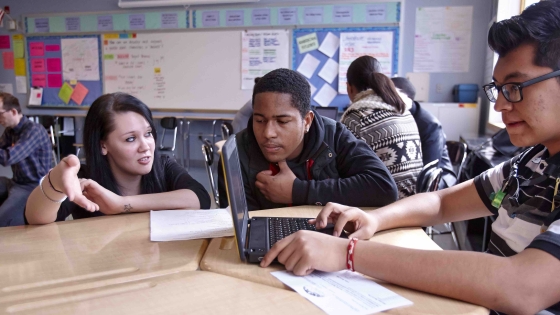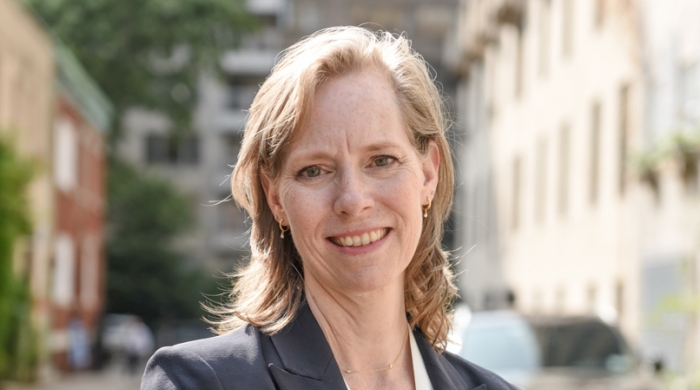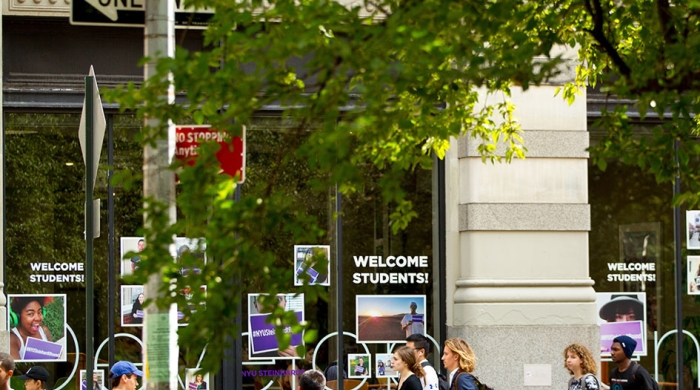May 2025
New York City schools have improved dramatically over the past twenty years. High school graduation rates rose from below 50 percent throughout the 1980s and 1990s to over 80 percent by 2019. "Dropout factories" once common in particular neighborhoods have nearly vanished. These gains didn't happen by accident—they resulted, at least in part, from strategic investments in data, evidence, and transparency.
Efforts to understand, measure, and advance excellence and equity in education are central to the Research Alliance’s mission. Our organization was created by stakeholders from across the political spectrum who shared a common belief: independent, transparent information about school performance is essential for improvement. That commitment to measuring results has helped NYC identify what works—including creating smaller, more personalized high schools; providing targeted supports to boost students’ attendance and sense of belonging; and enhancing school climate as a way to improve teacher and student outcomes. It has also helped identify what doesn’t work, or needs further iteration, and to track outcomes across different groups of students—which allows us to see where inequities persist and target resources accordingly. Without research and transparent measurement systems, it's impossible to know which reforms work for which students.
Unfortunately, this progress is now threatened by the cancellation of hundreds of millions in federal research grants and effective shuttering of the Department of Education's Institute of Education Sciences. Essential data collection efforts have been cancelled, and datasets and reports have been scrubbed from government websites, leaving educators, families, and policymakers flying blind.
Such attacks on educational research infrastructure pose a significant threat. By dismantling data collection systems and canceling research projects, we are making it impossible to identify–let alone learn from–our successes and our failures. We eliminate our ability to discern which interventions actually improve outcomes for students. Without independent, reliable data and evidence, how will parents know whether their children's schools are serving them well? How will taxpayers know if their dollars are being spent effectively? How will philanthropists know where their resources can make a difference? How will educators and policymakers identify and spread successful practices?
Abandoning our education research infrastructure won't solve any of the real challenges facing America's schools. Instead, it will undermine our ability to understand what works, leaving us to make decisions based strictly on ideology, rather than evidence. If we truly want to improve educational opportunities for all students, we need more high-quality data and research, not less.
Our Equity Indicators project exemplifies one potential avenue for expanding access to education data. Through the Research Alliance’s longstanding partnership with NYC Public Schools, and with support from Carnegie Corporation of New York, we have been developing a comprehensive set of equity indicators for NYC’s education system. This work builds on the National Academies of Sciences (NAS) recommendations for indicators that track differences in students’ educational opportunities and outcomes—and “differences in the conditions and structures in the education system” that shape students’ odds of success. Our most recent analyses show, for example, that high school students’ access to advanced coursework and supportive school climates differ substantially by race/ethnicity and income. We see similar disparities in students’ outcomes, including attendance, graduation, and college enrollment rates.
Measuring equity has never been more important. It provides information needed to ensure that all students have access to high-quality educational opportunities that nurture their development and prepare them to be successful, engaged citizens. Likewise, rigorously studying the implementation and impact of specific policies, programs, and practices helps ensure that we are spending precious resources on the things that are most likely to make a difference for students.
The Research Alliance and our partners and peer organizations stand as a bulwark against the dismantling of the nation’s education research infrastructure. We represent a model for uniting diverse stakeholders around a shared commitment to evidence-informed decision making. In this climate of uncertainty, there is a clear need for local, independent, nonpartisan research organizations that build and preserve knowledge to drive educational improvement. Working collaboratively with district leaders, educators, youth-serving nonprofits, community members, and students, we aim to ensure that New York City's educational progress won't be lost to blind ideology, and that future reforms will continue to be guided by what actually works for students. By prioritizing evidence over assumptions, we protect the progress we’ve made and safeguard the tools that drive educational improvement—without them we are not just uninformed, we are irresponsible.
We’d love to hear from you! Reach out to us through LinkedIn, Instagram, or email at research.alliance@nyu.edu.
Archive
Research Director's Note: September 2024
In this guest post, Dr. Kathryn Hill, Research Director of the Research Alliance, explores how community engagement is essential to equity-centered research and increasing the use of research evidence, highlighting how community partnerships can positively shape research projects.
Executive Director's Note: February 2024
Dr. Cheri Fancsali discusses our motivation for more consciously embedding equity throughout the Research Alliance's work, as well as the strategies we are using to bring an equity and racial justice orientation into both the substance and process of our research.
Executive Director's Note: November 2023
Dr. Cheri Fancsali discusses efforts to improve evidence use in NYC’s education ecosystem, by engaging a wider range of stakeholders; translating research findings into concrete tools for policy and practice; and cultivating a diverse network of research affiliates, to generate evidence on a broader range of topics that matter to NYC students, schools, and communities.
Executive Director's Note: September 2023
Dr. Fancsali outlines two overarching priorities for the Research Alliance's work as she begins her tenure as Executive Director: Improving evidence use and centering equity in our research.
Executive Director's Note: August 2023
Dr. Kemple provides further reflections on the balance we seek in ensuring that our work is highly relevant to the concerns of key stakeholders in NYC’s public schools and, at the same time, rigorous enough to meet the standards of high-quality (i.e., credible, valid, reliable) education research.
Executive Director's Note: July 2023
Dr. Kemple shares his perspective on two cornerstones of the Research Alliance's work: scientific rigor and relevance to the needs of NYC's education stakeholders.
Executive Director's Note: June 2023
Read Dr. Kemple's reflections on the upcoming transition in leadership at the Research Alliance for New York City Schools.







